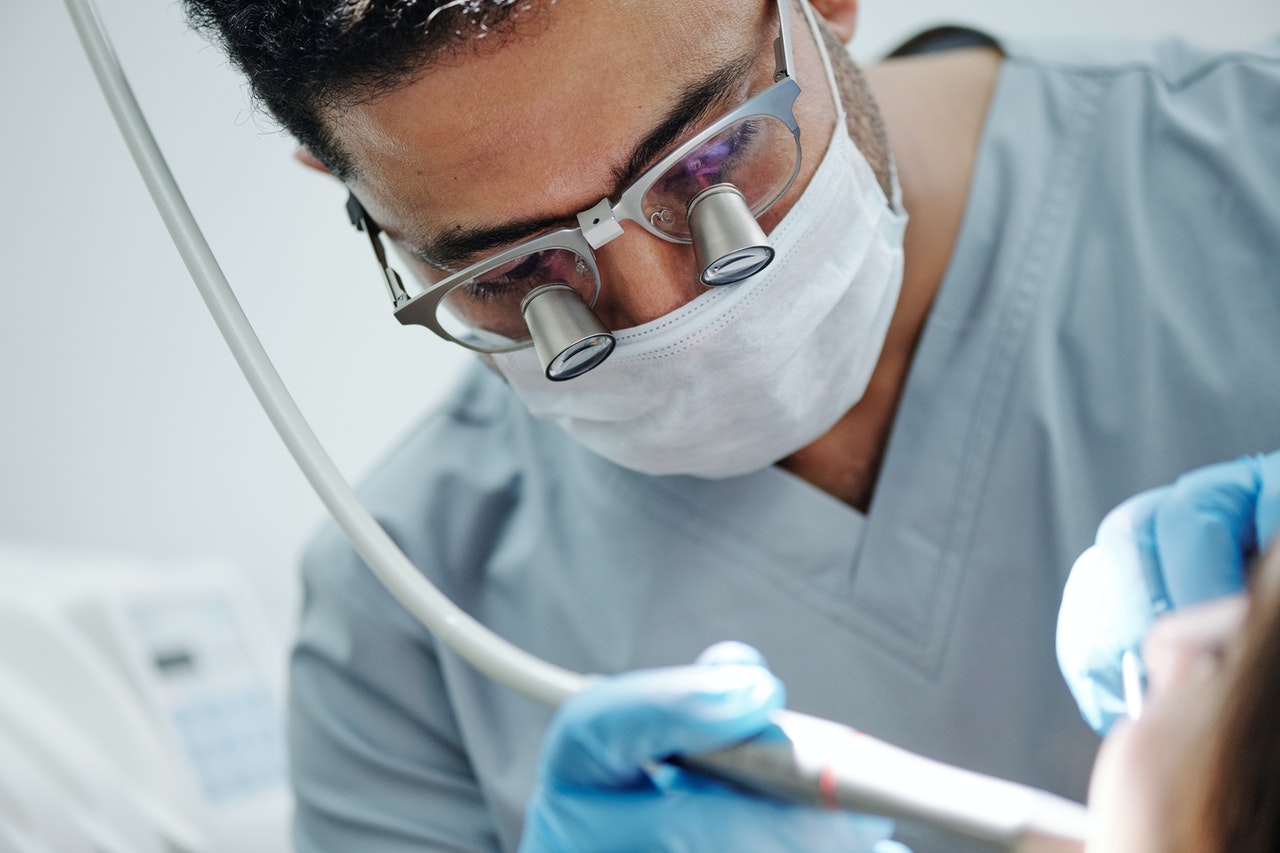Becoming a dentist is a fantastic career choice. Offering the opportunity to really help people, be creative and earn a good salary, among other benefits, it’s no surprise that there are just under 50,000 dentists in the UK. And as you’re reading this article, we’re assuming you’re at least somewhat interested in becoming one yourself. But how exactly do you do this?
The required qualifications
Undergraduate dental education
To qualify as a dentist, you need to complete a bachelor of dental surgery (BDS) degree at university. As well as gaining all the academic knowledge required to be a dentist, you’ll get plenty of practical experience too, working in a range of hospital and community clinics treating patients under close supervision. To give yourself the best chance of practising dentistry post university, you’ll want to get at least a 2:1 in your degree.
Do bear in mind that it can be difficult to get onto these courses in the first instance, however, as you need high A-level results, with chemistry and biology required subjects. That said, some universities offer a one-year pre-dental course for those who don’t have the requisite grades.
What’s more, many institutions require applicants to pass a UCAT (University Clinical Aptitude Test) exam too, a two hour computer-based assessment based on the abilities, attitudes, and professional behaviours needed by dentists (and other medical professionals). With the UCAT exam notoriously difficult, we recommend undertaking a preparation course to give you the best chance of passing. UniAdmissions’ features one-to-one tuition, an intensive course and online revision support, with a proven track record of helping students pass the assessment.
Postgraduate dental education
Once you’ve graduated, you’ll need to undergo dental foundation training (DFT) (or vocational training (VT) if you’re in Scotland) if you want to work for the NHS. This is supervised training in which you work for an approved dentistry for a year after university. Eligible applicants are ranked by a Situational Judgment Test score and a virtual interview, with the former accounting for 75% and latter 25%. In order to prepare for this, it’s recommended to check out the SJT test paper published by COPDEND. There’s also more information and guidance on the test and interview on the COPDEND DFT recruitment website.
Regardless of whether you intend to work for the NHS or not, you’ll need to register with the General Dental Council (GDC) in order to practise as a dentist in the UK. This involves an online application form, plus providing ID and proof of your qualification. You’ll have to pay an annual fee to remain a member and undertake continuing professional development to be allowed to continue practising.
To become a specialist dentist, such as an endodontist, orthodontist or periodontist, or a cosmetic dentist, you’ll also need to undertake further training with that profession’s particular professional association.
The requisite skills
In order to be a dentist, you need to have a certain skill set, which includes:
- Manual dexterity and technical dentist abilities, as well as being able to concentrate for long periods of time
- The ability to forge relationships with patients and colleagues
- Excellent communication skills, for interactions with patients of various ages and backgrounds
- An interest in the well-being of others and the ability to deal with patients in a sympathetic way
- IT skills to maintain records and accounts
- Administrative and managerial skills if you intend to run a dentistry
The career paths & workplaces
If you have the qualifications and you’re confident you possess the right skills, it’s now time to find your dream job. There are many different career paths you can go down, involving either being a general dentist, a specialist dentist or a cosmetic dentist. You may even choose to pursue an academic career in the dentistry field after you graduate.
Whatever you pick, you will be able to work in one or several of the following workplaces:
Dental practice
Here, you’ll work as an assistant or self-employed associate at either an NHS or private dentistry. Dental practices range from a single practitioner to multi-site partnerships with numerous associates.
NHS hospital trust
Here you’ll be a salaried dentist specialising in a particular area of dentistry.
Community dental service
Other salaried dentists within the NHS will work in a range of clinical settings, such as health authority surgeries, mobile clinics and residential homes.
The armed forces
Those employed by the armed forces will work at Royal Air Force, Royal Army and Royal Navy locations across the UK and overseas.



 Bitcoin
Bitcoin  Ethereum
Ethereum  Tether
Tether  XRP
XRP  Solana
Solana  USDC
USDC  TRON
TRON  Cardano
Cardano  Lido Staked Ether
Lido Staked Ether  Avalanche
Avalanche  Toncoin
Toncoin